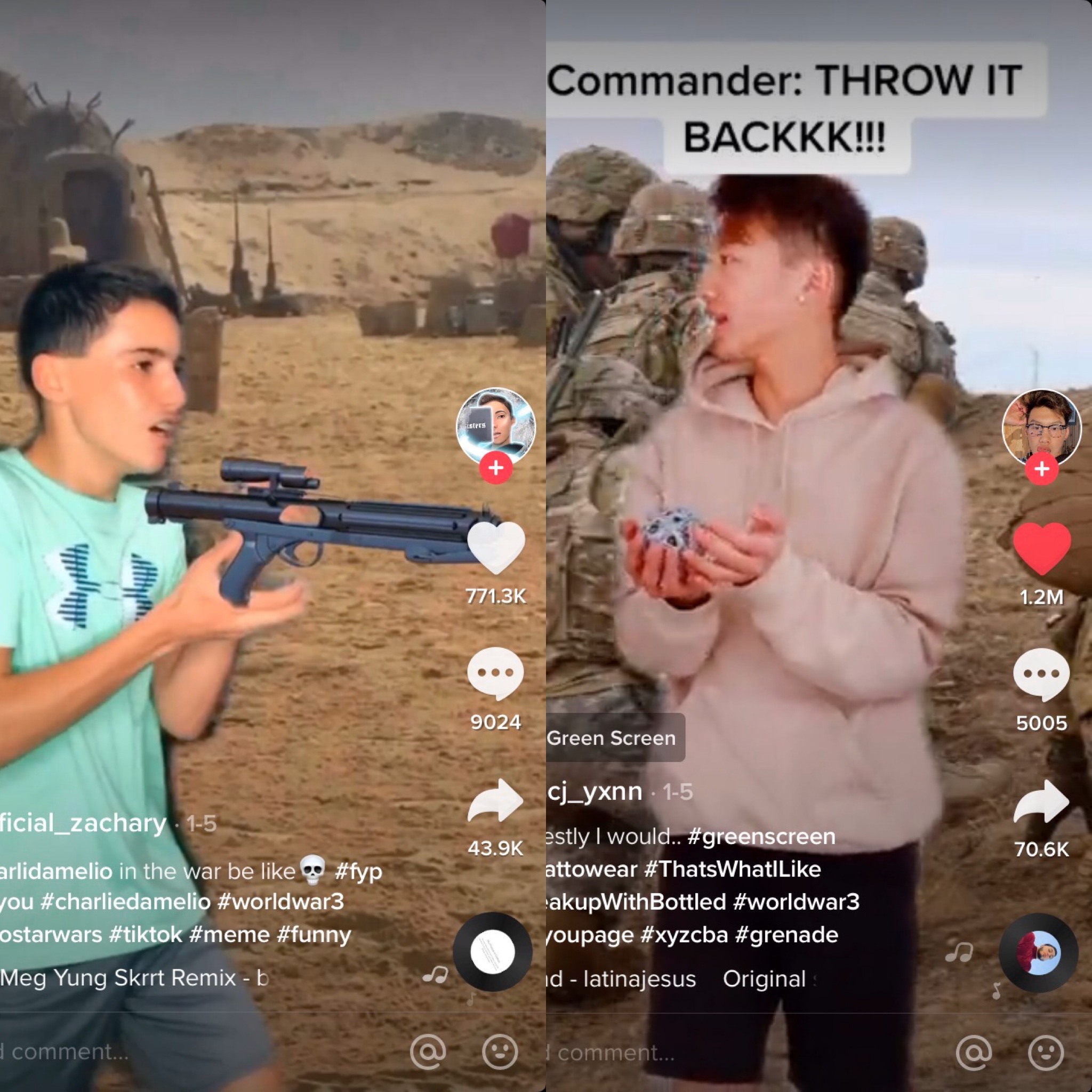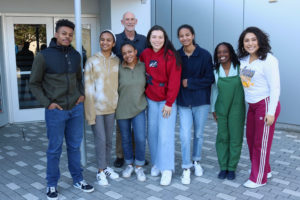While Iran was dealing with the effects of the airstrike assassination of General Qassim Suleimani, seven thousand miles away, American teens went viral on TikTok. As high schoolers opened the app, their pages were flooded with memes, videos, and jokes about the conflict, and many began to trust the trending hashtags about an American draft for a new war.
TikTok, a social media platform growing rapidly in popularity, allows users to post short videos for their followers. Creators attempt to go viral by dancing, making memes, or acting as characters on the “For You” page, an ever-changing feed of the app’s most popular videos. Teens are launched into stardom from their bedrooms as they attract mass followings overnight.
The app’s popularity among Generation Z has resulted in a community network for teens to see how others their age think, feel, and react to current events. After a nation-wide SAT, an episode of The Bachelor, or a TikTok celebrity creates a new dance, the “For You” page is flooded with videos making light of the events. The same goes for more intense news.
TikToks about serious topics, especially in an increasingly tense world, are one of the main avenues young people have to make sense of the hard-to-swallow news. These social media posts may be jokes, but they also show how the next generation is coping with World War III.
When the story of the Iran conflict broke, high schoolers immediately took to their phones, and within hours, hashtags such as #worldwar3 were trending on the app.
Scrolling through TikTok in the days following the initial threat of “World War III,” it became apparent that not everyone knew what was actually going on in Iran. Some users were basing their information off of social media trends and not bothering to put further research into what was happening in the world.
While Iranian-Americans were being questioned and threatened at the United States border, TikTokers were making jokes about how they would use trending dances as war tactics. A plane was shot down in Iran due to increased tension in the country, and American teen boys were dressing up as girls to pretend to avoid “the draft.” Creators made jokes that were insensitive and irresponsible, fully unaware of the actual consequences of the conflict.
With Iran, TikTok got it wrong. Jokes about dodging bullets by doing the “Renegade” dance, fleeing to Mexico to avoid the draft, and having control of the auxiliary cord in tanks aren’t funny. People, both in the country and out, were in serious danger, and Generation Z cared more about their 15 seconds of fame than being sensitive to those in need.
These social media posts, first created to make light of a serious situation, ended up crossing the line, making many people extremely uncomfortable. Generation Z, the group of teens also taking action against climate change and gun violence, acted irresponsibly and insensitivly surrounding other issues that impacted the lives of many. They should have known better.
High schoolers are serious about the issues that directly affect them, such as gun violence and climate change, but don’t care about being insensitive when they are not the group who is struggling.
Teens have more access than ever to the voices of others their own age and need to learn how to use this power responsibly. Social media has the power to unite students across the world, fostering trust and community in a time where divisions continue to advance. This generation has to make the choice of whether to use apps like TikTok for positive change or for negativity and division.







